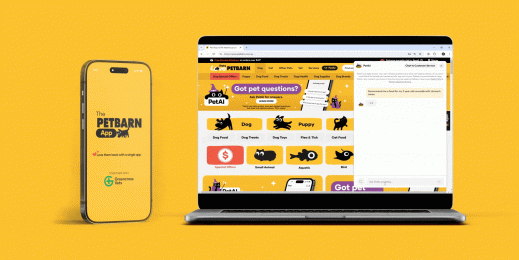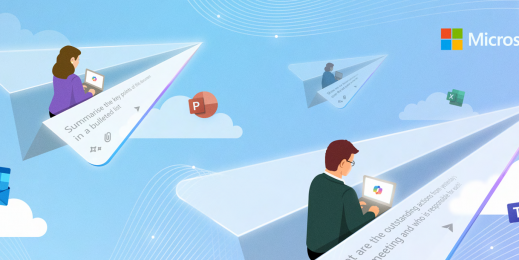SMBs must adapt and evolve to survive, according to latest Microsoft research

Many small and medium-sized businesses (SMBs) are grappling with rising costs, post-pandemic supply chain issues, increased cybersecurity threats and more. Digital technology is the key to unlocking your organisation’s full potential and meet these challenges head-on.
Microsoft’s latest report is a guide to accelerating your digital journey. It combines research, expertise and insights to help your organisation embrace digital technologies to adapt to rapid and unpredictable change.
Embarking on a digital journey might mean embracing the cloud, welcoming new ways of working and innovating or tapping into a global talent pool. Everyone’s digital journey will be different, but the important thing is to adapt and evolve.
Here are four key areas we believe you should focus your efforts.
1. Digital security
Digital security has become a core issue as hackers increase their efforts and hybrid working means more people are using their own devices for personal and professional activities.
According to our report, 65 per cent of Australian SMBs suffered a cybersecurity incident in 2021 alone. The Australian Cyber Security Centre also received more than 67,500 cybercrime reports in the year to mid-2021 – which was a record number.
As we discuss in the report, digital security solutions can protect your apps, devices, data and people, wherever they work. Cloud-based solutions are simpler to manage than traditional on-premises security solutions, and offer streamlined provisioning for new devices, automated updates and clear performance monitoring and reporting.
2. Talent
Attracting and retaining the right talent is another top priority for businesses today.
The Microsoft Work Trend Index survey from March 2022 found that 48 per cent of Australian SMB employees were somewhat or extremely likely to consider changing employers in 2022 and some 1.3 million Australians changed jobs in the last 12 months (March 2021 – March 2022).
Our report also shows that 70 per cent of digitally enabled SMBs will operate under a hybrid working model and that remote working will become the norm.
SMBs need to empower their talent with best-in-class tools and technology for traditional and remote work. They also need to invest in ensuring their current staff have the digital skills they need to improve their job satisfaction and address the talent shortage.
At the same time, companies can use cloud technologies and no-code and low-code technologies to help fill resourcing gaps. These tools put programming capabilities at people’s fingertips, without requiring them to have any knowledge of programming language.
3. Growth and innovation
SMBs need to attract and retain new customers by scaling quickly to meet demand and embracing new business models. Nearly 70 per cent of SMBs say business growth and profit margins are their top business objectives right now.
Australian fintech player Shift has digitally transformed its business to enable the delivery of finance on demand to customers and rapidly scale its operations. The business now runs entirely in cloud using Microsoft Azure, and has seen enormous improvements to speed, reliability and accuracy in data analysis.
Cloud tools can help your business identify, track, convert and measure customers along their entire journey, while virtual servers make it easy to increase bandwidth and computing capacity. It’s important that your technology investments enable your business to onboard more customers and meet their needs efficiently.
4. Business efficiency
Our report highlights that more than 78 per cent of executives think their organisations are unnecessarily complex. There are many ways an SMB can improve efficiency, from enabling better internal communication to reducing double-handling in business processes.
Australian tech startup loadin.com is one of many SMBs who have unlocked business efficiencies to transform how music festivals are put together. Built in the cloud on Microsoft Azure, the platform allows organisers to manage all information in one place, identify missing documents and enable automation and live-updating features.
Digital technology is the key to unlocking simplification and efficiency in business processes. Organisations that have implemented Azure tools and resources, for instance, have seen their IT teams become 55 per cent more efficient and their developers 26 per cent more productive.
Accelerate your digital journey
Digital transformation requires careful planning, a deep understanding of your business and a willingness to try new things. Our advice is to start small, focus on unlocking value, make simplification a core principle and commit to the journey.
Over the next few years, companies like yours will be in the cloud and discovering possibilities that were once only available to the largest enterprises. The question to ask isn’t whether you should go digital, it’s how fast you can accelerate.
Download the report to learn more.
















